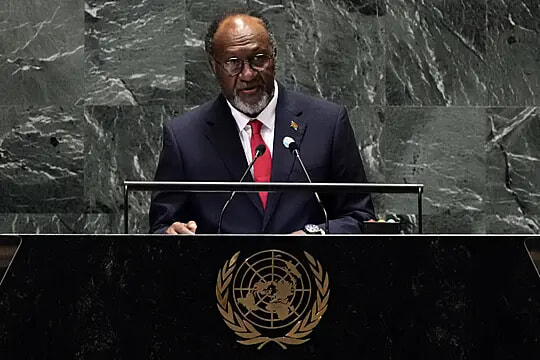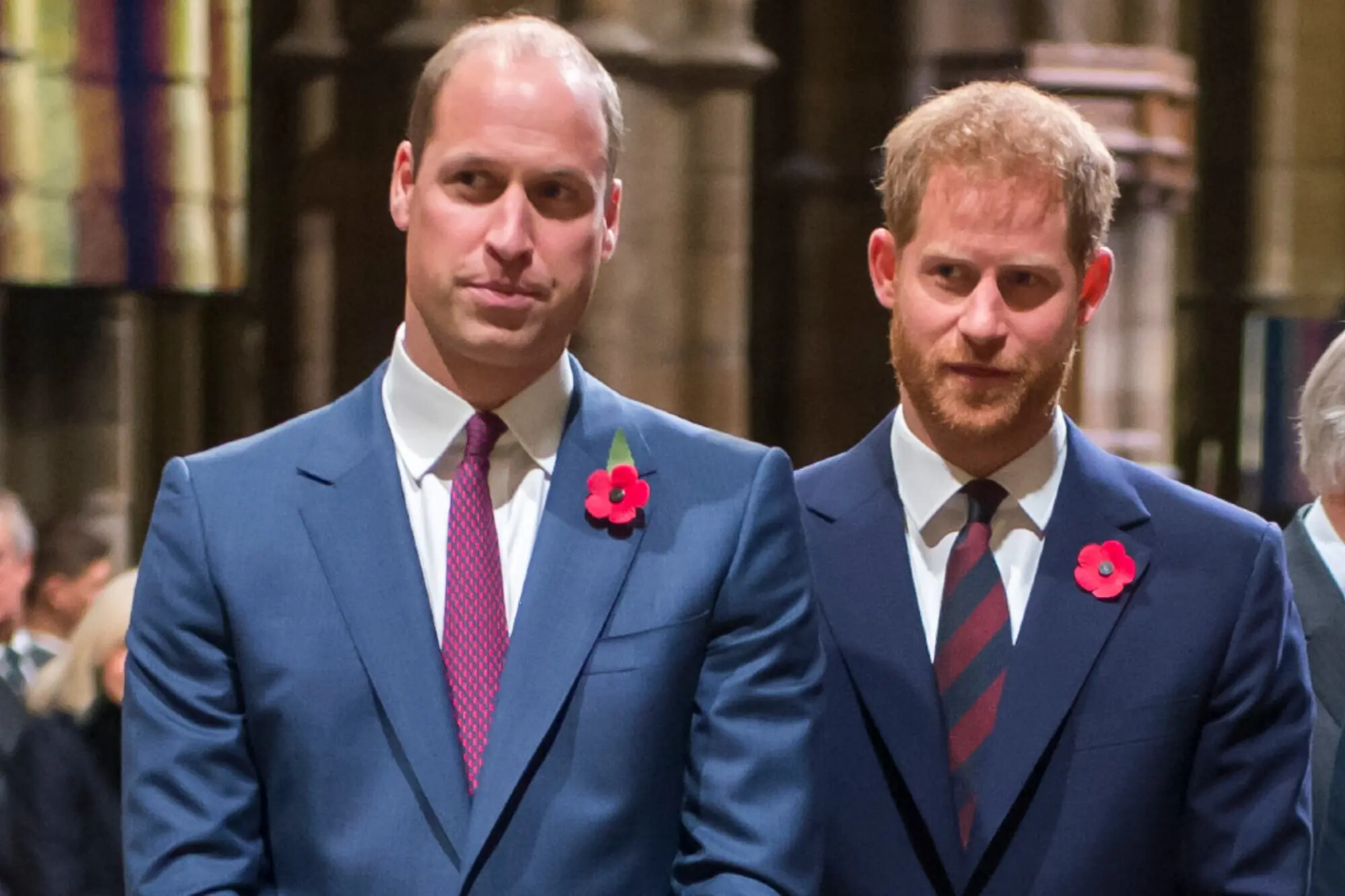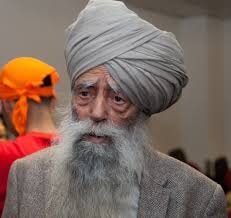
Fauja Singh, the 'Worlds Oldest Marathon Runner', Dies at 114 in Hit-and-Run
How ironic.
Published July 16, 2025
Advertisement
Advertisement
1. The Boy Who Could Barely Walk
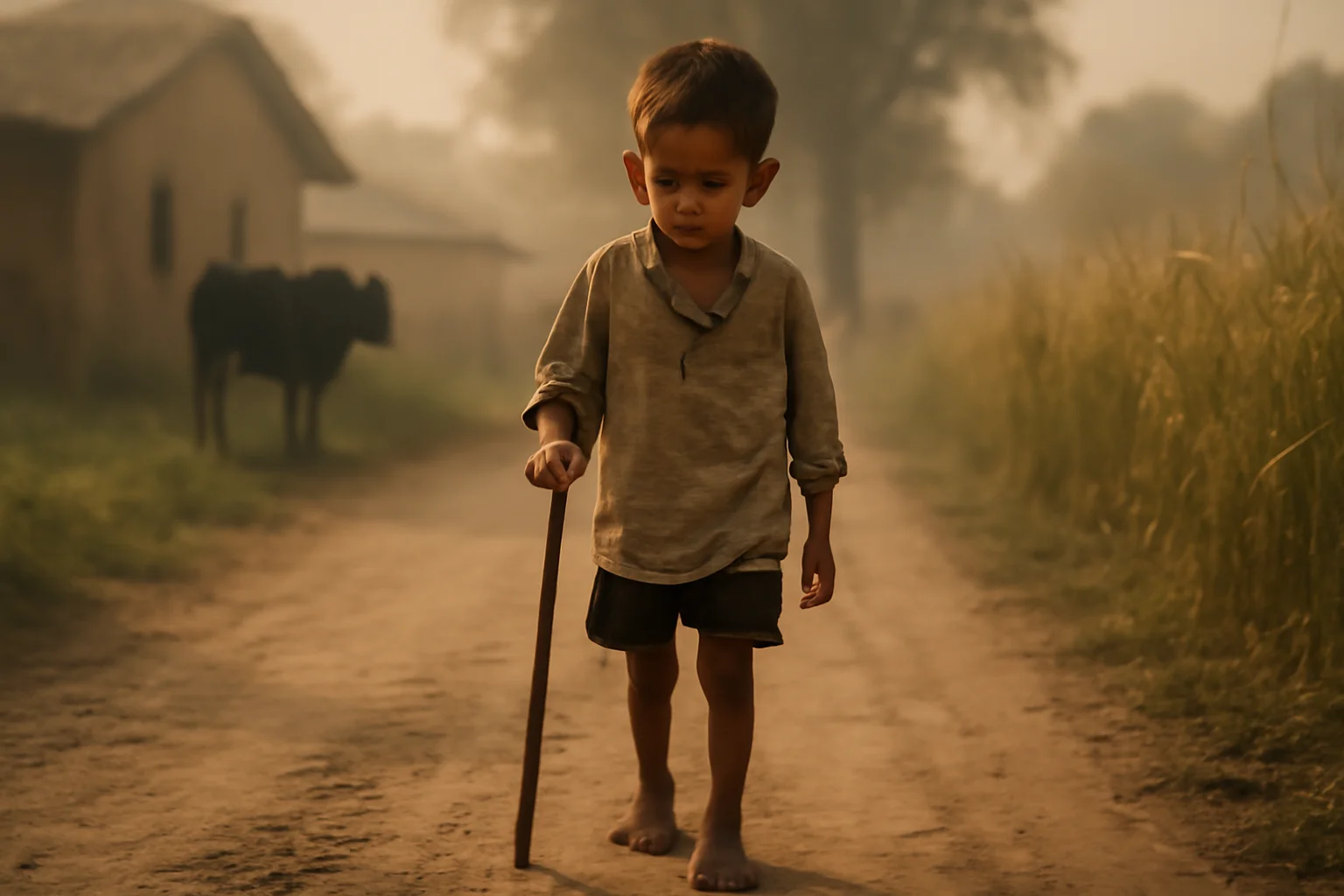
Long before he became a legend, Fauja Singh was a frail child in rural Punjab, born in Beas Pind in 1911 under British colonial rule.As the youngest of four siblings in a farming family, his early life was marked by weakness—he could not walk until age five and was mockingly called “Stick” by his neighbors for his thin legs.Surrounded by fields, Fauja eventually learned to walk and worked alongside his family, tending cattle and growing wheat.His early years were shaped by momentous global events—two world wars, the trauma of India’s Partition, and relentless change sweeping across his homeland.He never attended school, and the word “marathon” meant nothing to him as a young man; his universe was limited to family, village, and farmland.Marriage, hardship, and the relentless churn of history shaped him, but no one in Beas Pind could have predicted the course Fauja’s life would take.By the time he was in his forties, he had witnessed the highs and lows of rural life, including the loss of loved ones and the turbulence of a country finding its independence.Still, nothing could have hinted at the extraordinary feats he would achieve decades later, after a lifetime spent far from the spotlight.Fauja’s youth was not one of athletic promise, but of endurance—a quiet lesson in surviving adversity.In the fields, he learned resilience and humility, setting the foundation for the marathon journey that would ultimately define his life.This unassuming beginning was the first step in a story that would soon span continents and capture the world’s imagination.
Advertisement
2. From Tragedy to Transformation
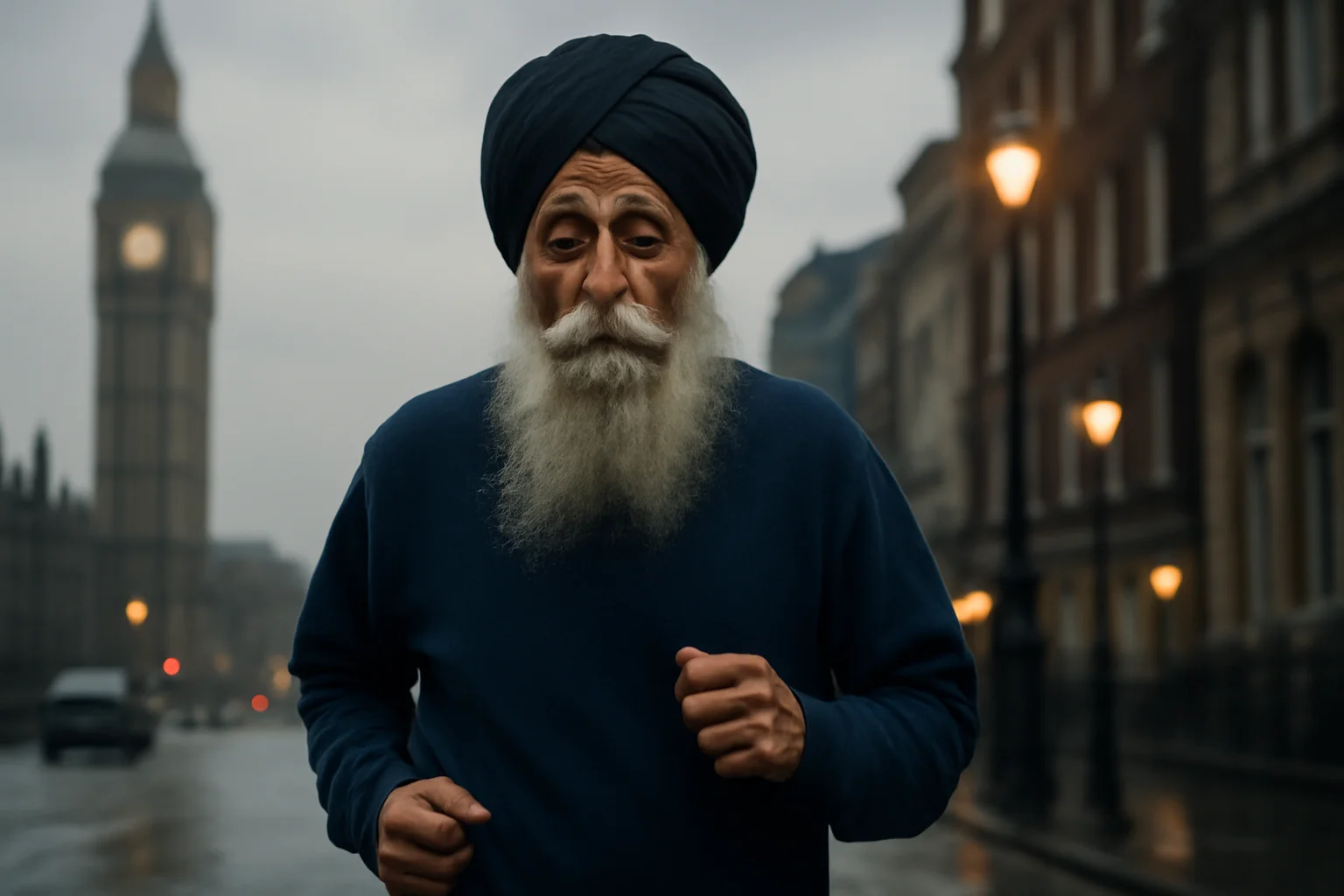
The roots of Fauja Singh’s greatness were not planted in competition but in profound personal loss.After decades spent farming and raising a family, he was devastated by the death of his beloved wife, Gian Kaur, in the early 1990s.Grief compounded when, during a trip to India, he witnessed his younger son Kuldip’s tragic and violent death in a storm, an event that left him shattered.For a time, Fauja retreated into himself, haunted by sorrow and unable to find meaning in daily life.His children had emigrated, and he eventually left Punjab to live with his eldest son in London, seeking solace and a new beginning in unfamiliar surroundings.Loneliness pressed heavily upon him, and it was only after years of wandering Ilford’s public parks that he discovered a community of elderly Sikh runners at his local gurdwara.There, Fauja met coach Harmander Singh, whose encouragement would transform him from a grieving father into a runner with a mission.Running began as a way to cope with loss, but it soon became a spiritual practice—a daily discipline that revived his spirit and gave him a new reason to live.It was not a pursuit of glory that propelled him onto the streets of London but a quiet determination to keep moving forward, one step at a time.The discipline, camaraderie, and focus of marathon training helped Fauja replace sorrow with purpose.By turning to running, he not only healed his own heart but prepared to inspire millions facing their own moments of despair.
Advertisement
3. The Turbaned Tornado
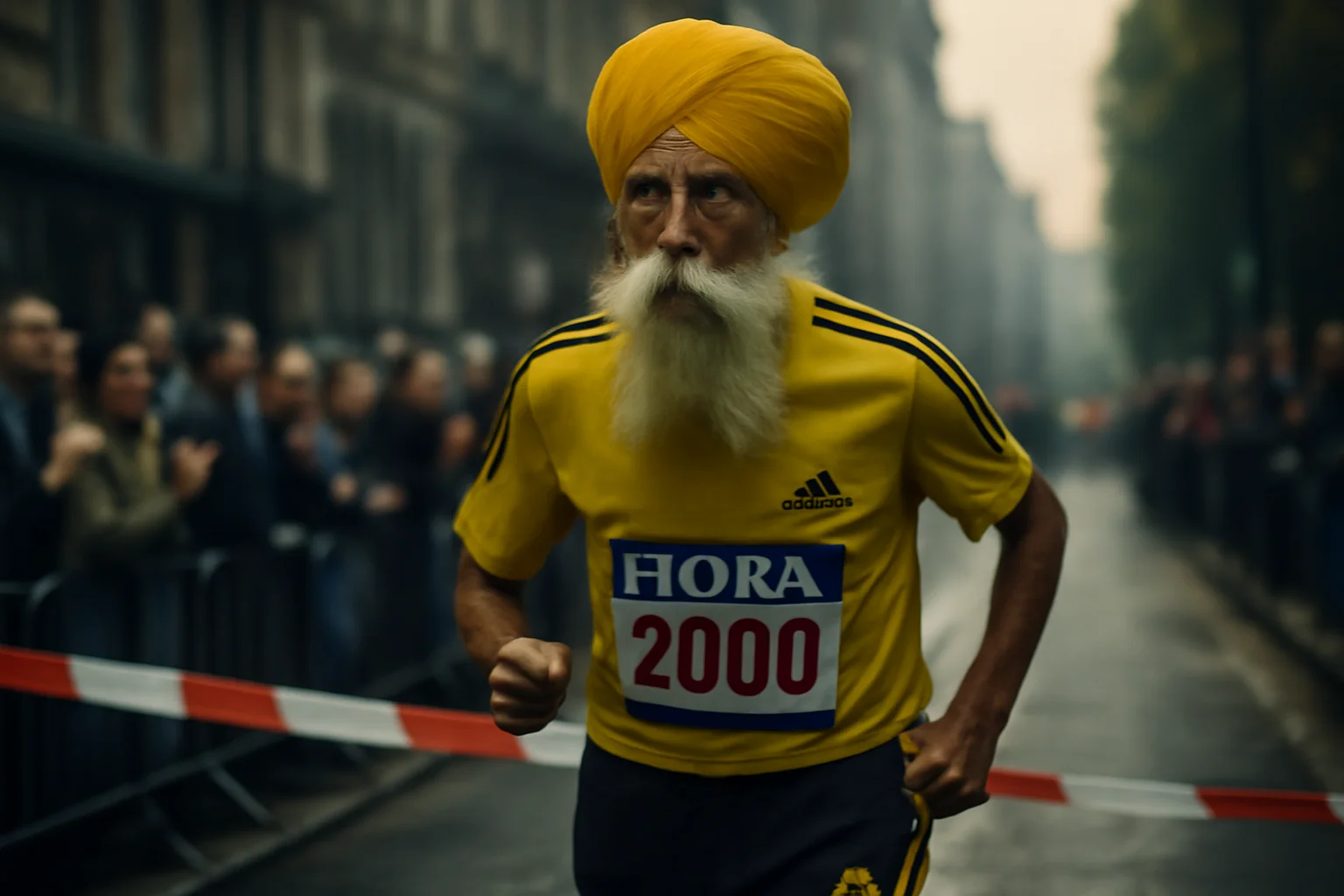
At the improbable age of 89, Fauja Singh entered the world of competitive running with an innocence and vigor that startled everyone who met him.His debut at the London Marathon in 2000—just shy of his 89th birthday—became the stuff of legend, as he crossed the finish line in 6 hours and 54 minutes, shattering records for his age bracket.Every new race brought improvement; at the 2003 Toronto Marathon, he clocked a personal best of 5 hours and 40 minutes.The global media, enthralled by this slender Sikh with a flowing beard and iconic turban, quickly christened him the “Turbaned Tornado.”What began as a personal quest became a public sensation: Fauja’s perseverance, humility, and visible joy in running drew admirers from every continent.He credited his rapid gains to the relentless training schedules set by Harmander Singh, often running hills and attending the gurdwara for community support and healthy meals.Fauja was never motivated by fame or fortune; he ran for charities, always seeking ways to use his achievements to help others.By his third appearance at the London Marathon, he had trimmed his time by nine minutes, demonstrating not just stamina but continual improvement at an age when most people retire from the world.His visibility soared when Adidas featured him in the iconic “Impossible is Nothing” campaign alongside sporting legends like Muhammad Ali and David Beckham.Fauja’s identity as both devout Sikh and unstoppable runner gave hope to millions, particularly the elderly and marginalized.The story of the Turbaned Tornado was just beginning to accelerate—and the world could not look away.
Advertisement
4. Making History, Defying Doubt
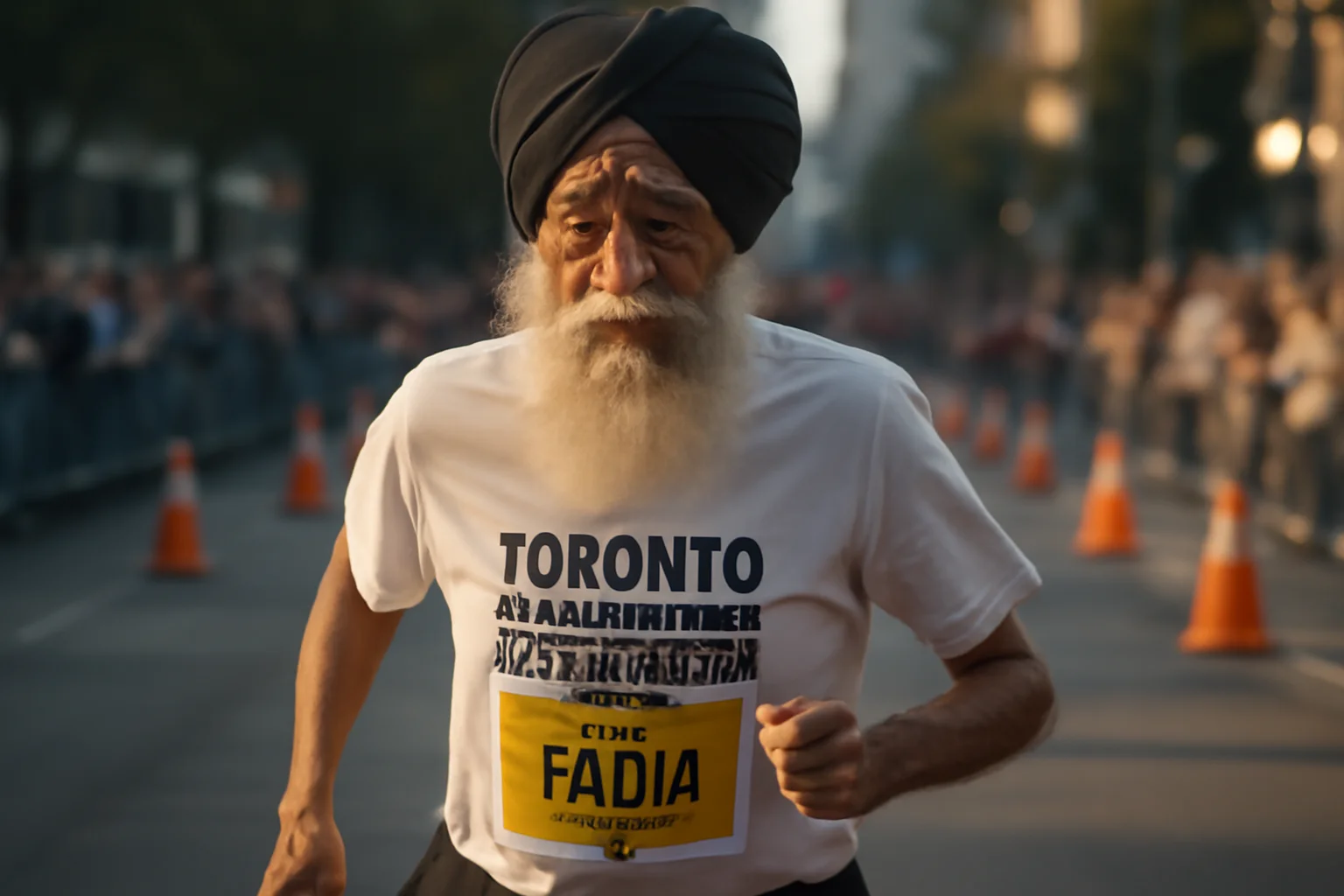
As Fauja Singh pushed past the boundaries of age, he confronted skepticism and bureaucratic hurdles along with his training runs.He became the first centenarian—by his own account and supported by British documents—to complete a full marathon at age 100, finishing the 2011 Toronto Waterfront Marathon in just over 8 hours.Yet, due to the lack of an official birth certificate from 1911 India, Guinness World Records refused to ratify his achievements, citing the impossibility of confirming his age.For many, this technicality was irrelevant; Fauja’s British passport, telegrams from Queen Elizabeth II, and the testimony of his community were enough.He ran marathons in London, Toronto, New York, and beyond, collecting accolades and records in every city, but it was the sight of him running with effortless grace—while chatting with God, as he put it—that truly set him apart.Fauja inspired not just the elderly but also the young, the marginalized, and those told by the world they were too weak or too late.He was invited to torchbearer duties at the 2004 Athens and 2012 London Olympics, cementing his place among international sporting legends.Media campaigns and advertisements brought him global fame, but he remained steadfastly humble, directing most of his earnings to charity.His story became a beacon for anyone who had been dismissed or doubted, and his relentless optimism was as legendary as his endurance.Even when recognition was withheld, Fauja Singh’s legacy was secure, his message clear: barriers exist only to be broken.
Advertisement
5. Mystery at the Finish Line
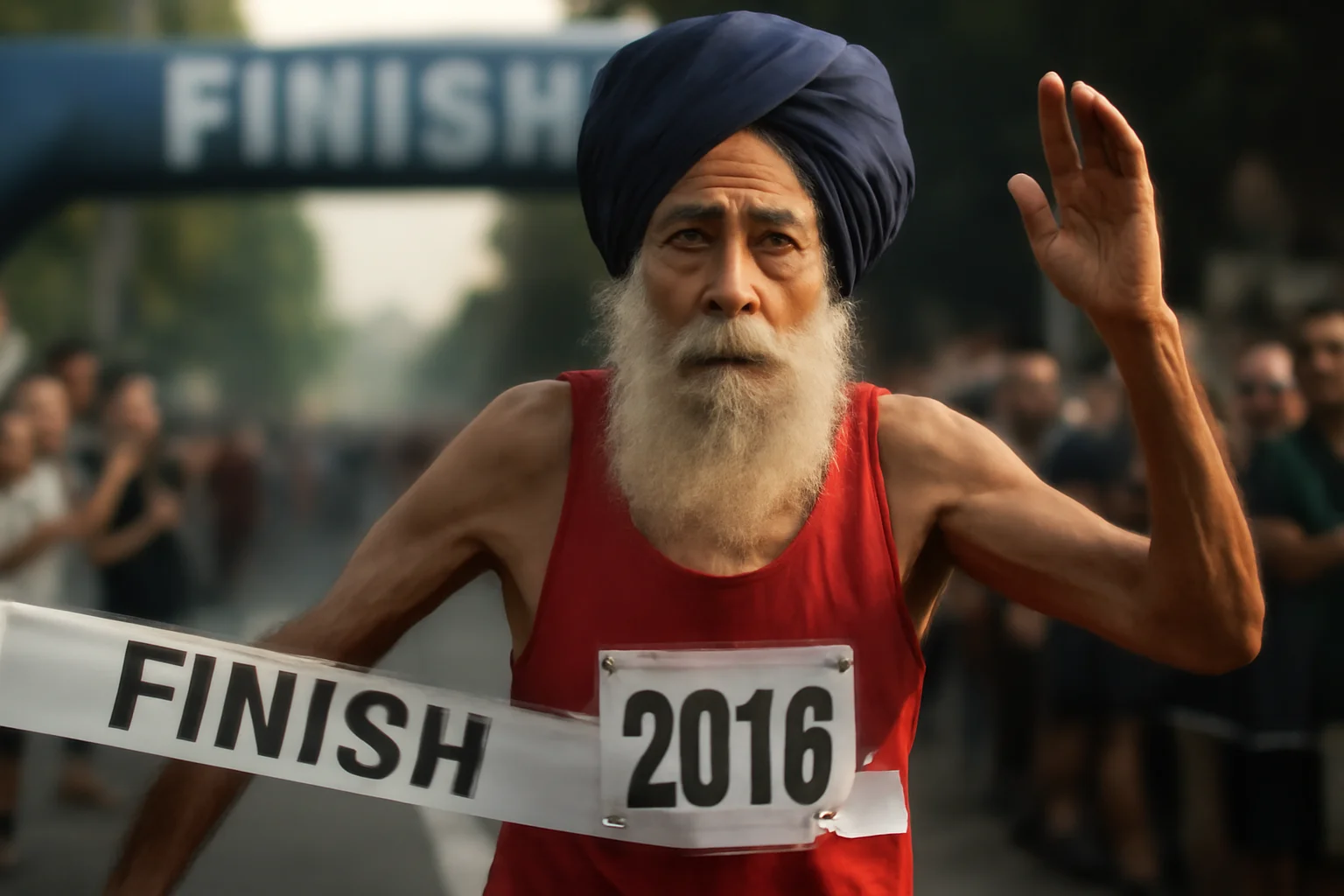
For all his fame, Fauja Singh’s journey was shadowed by the enigma of his age.While his British passport and family testimony affirmed his birthdate as April 1, 1911, the absence of a birth certificate kept official recognition just out of reach.Sports authorities debated, with some officials lamenting the disadvantage faced by athletes from countries where birth records were never issued.Yet, even as the Guinness World Records refused to confirm him as the oldest marathon runner, public sentiment had already decided—the world saw Fauja as a record-breaker.Medical experts marveled at his feats, with centenarian researchers noting that his endurance was extraordinary but not biologically impossible.Fauja himself was unfazed, often stating that he ran with openness and honesty and cared more for inspiration than for statistics.He was content to have made millions happy, even if some questioned his records.His supporters, from local runners to global celebrities, saw in him a symbol of resilience against both time and bureaucracy.Queen Elizabeth herself sent letters of congratulations for his supposed 100th and 105th birthdays, further validating his claims in the public eye.In the end, the true measure of Fauja’s achievement lay not in documents, but in the hope and determination he instilled in others.With every stride, he blurred the line between what was possible and what was provable—forever altering the landscape of sport.
Advertisement
6. A Life on the Run
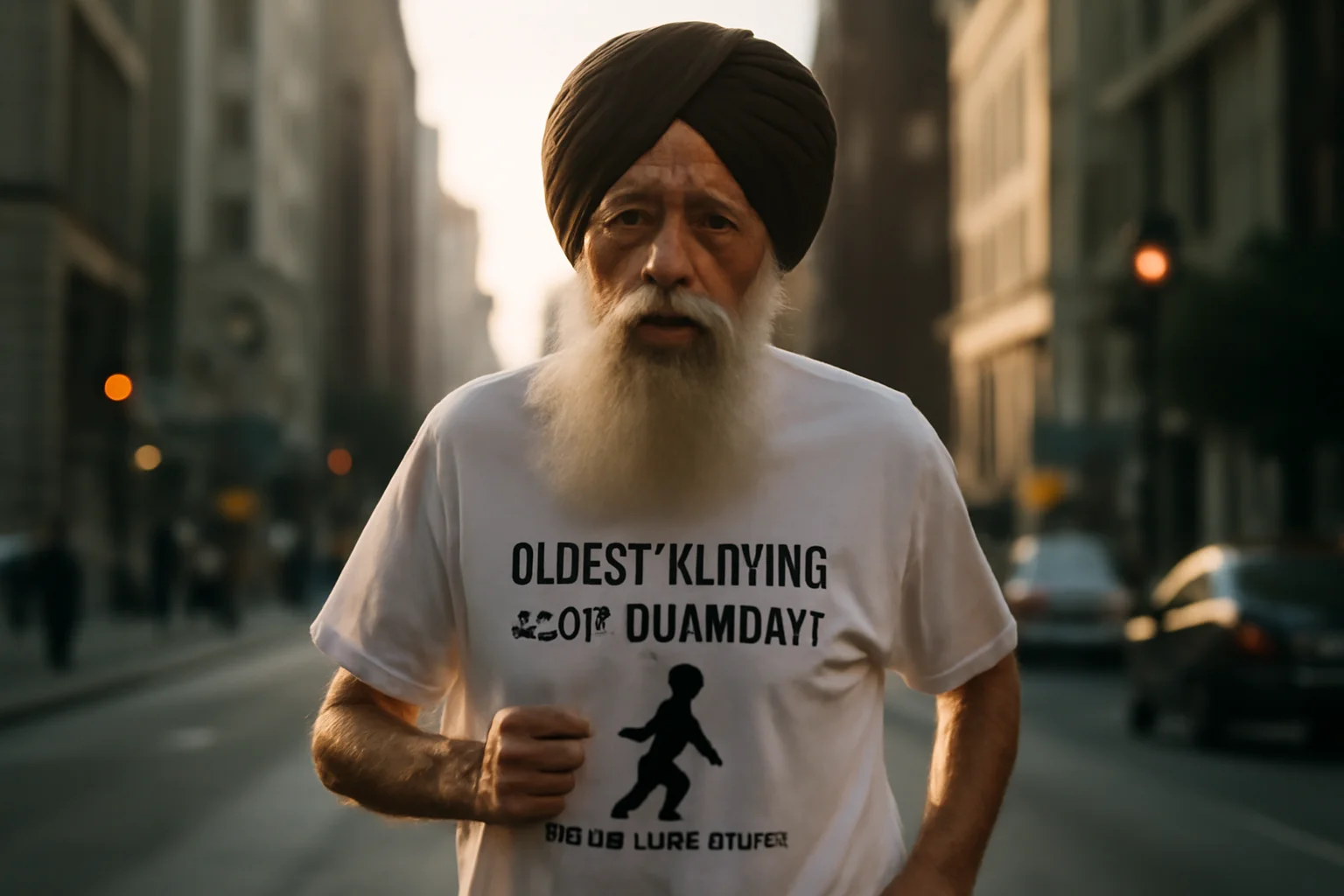
Despite the glare of international fame, Fauja Singh never lost sight of his roots or his purpose.He ran not for medals but to raise money for charities supporting premature infants, disaster victims, and struggling communities.His famous slogan—“Oldest running for the youngest! May they live as long as him”—captured both his humor and his humanitarian spirit.Every city he raced in, from Toronto to Lahore to Hong Kong, witnessed him dedicating his efforts to causes bigger than himself.He was a beloved figure at Sikh temples and community gatherings, where he motivated both young and old to pursue fitness and service.Endorsement deals and advertising campaigns brought him resources, nearly all of which he funneled back into charitable work.Friends, coaches, and family recall his discipline and generosity as much as his astonishing physical feats.He saw running as a spiritual journey—each step a form of prayer, each finish line an offering to those who needed hope most.Fauja’s humility and deep faith made him more than an athlete; he became an ambassador of resilience, compassion, and Sikh identity.His autobiography, “Turbaned Tornado,” and a children’s book based on his life introduced new generations to his story.Even after announcing his retirement at 102, he continued to run, fundraise, and inspire, ensuring that his marathon of service would never truly end.
Advertisement
7. The Simple Secrets of Endurance
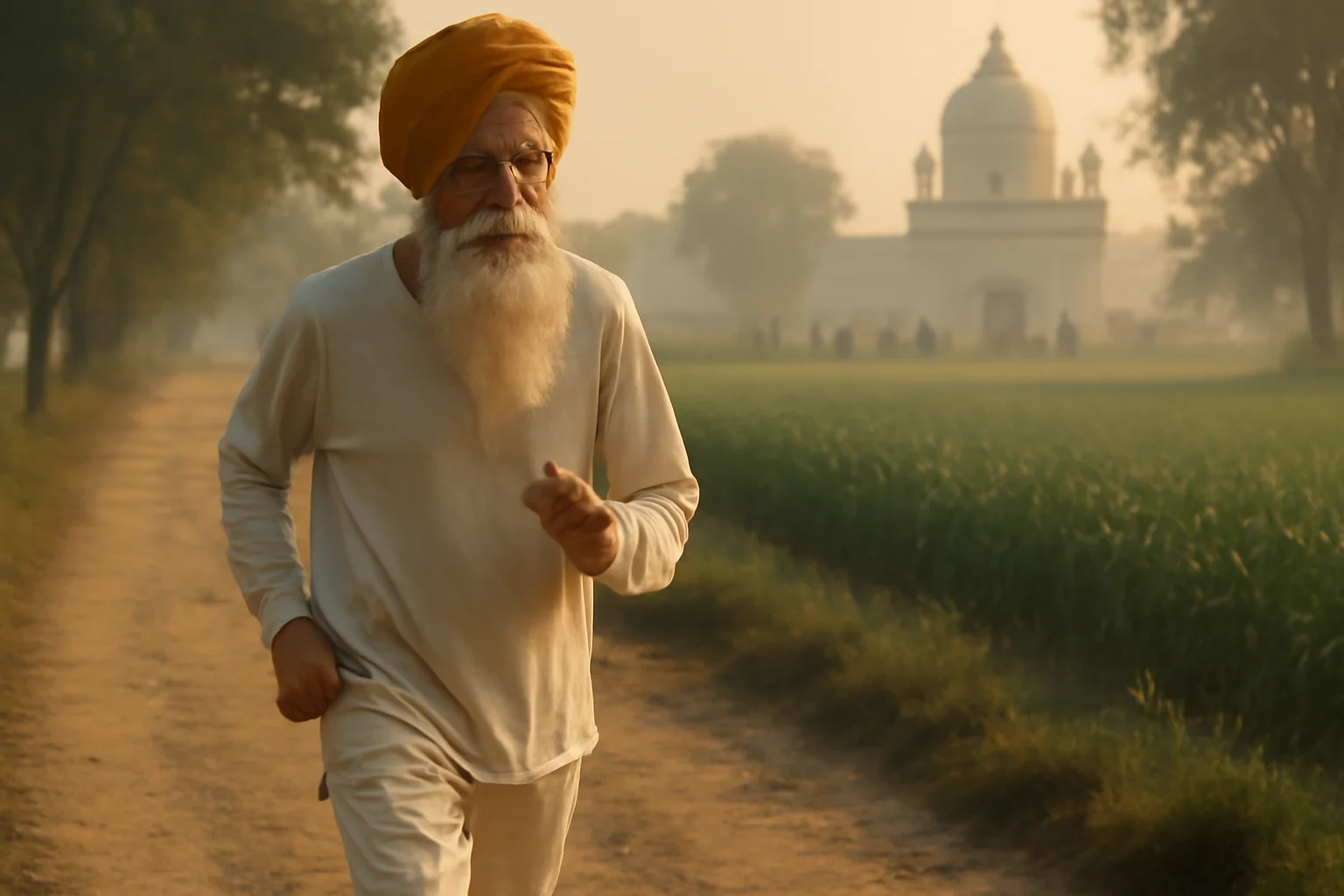
When asked the secret of his longevity, Fauja Singh credited a lifestyle that was both disciplined and joyful.He embraced a vegetarian diet, abstained from tobacco and alcohol, and lived simply, savoring farm walks, homemade curd, and daal-based sweets packed with dry fruit.Training was rigorous but never joyless—he relished the open air, the feeling of soil beneath his feet, and the encouragement of his community.After every workout, he attended gurdwara services and meals, nourishing both body and soul.His motto was straightforward: “Eat less, run more, and stay happy.”Routine and ritual gave his days structure, while gratitude and humility kept his spirit buoyant through adversity.He treated every setback as a lesson, every success as an opportunity to give back.Even in his final years, Fauja walked several miles each day, splitting his time between India and England, always looking forward to reunions with family and friends.He credited coach Harmander Singh and the Sikh community for his success, insisting that teamwork and support were as vital as discipline.Fauja’s formula for life was neither secret nor complicated—he simply embodied the virtues of patience, perseverance, and purpose.His longevity was not just a medical marvel but a testament to the power of mindset and community.
Advertisement
8. Farewell on the Open Road
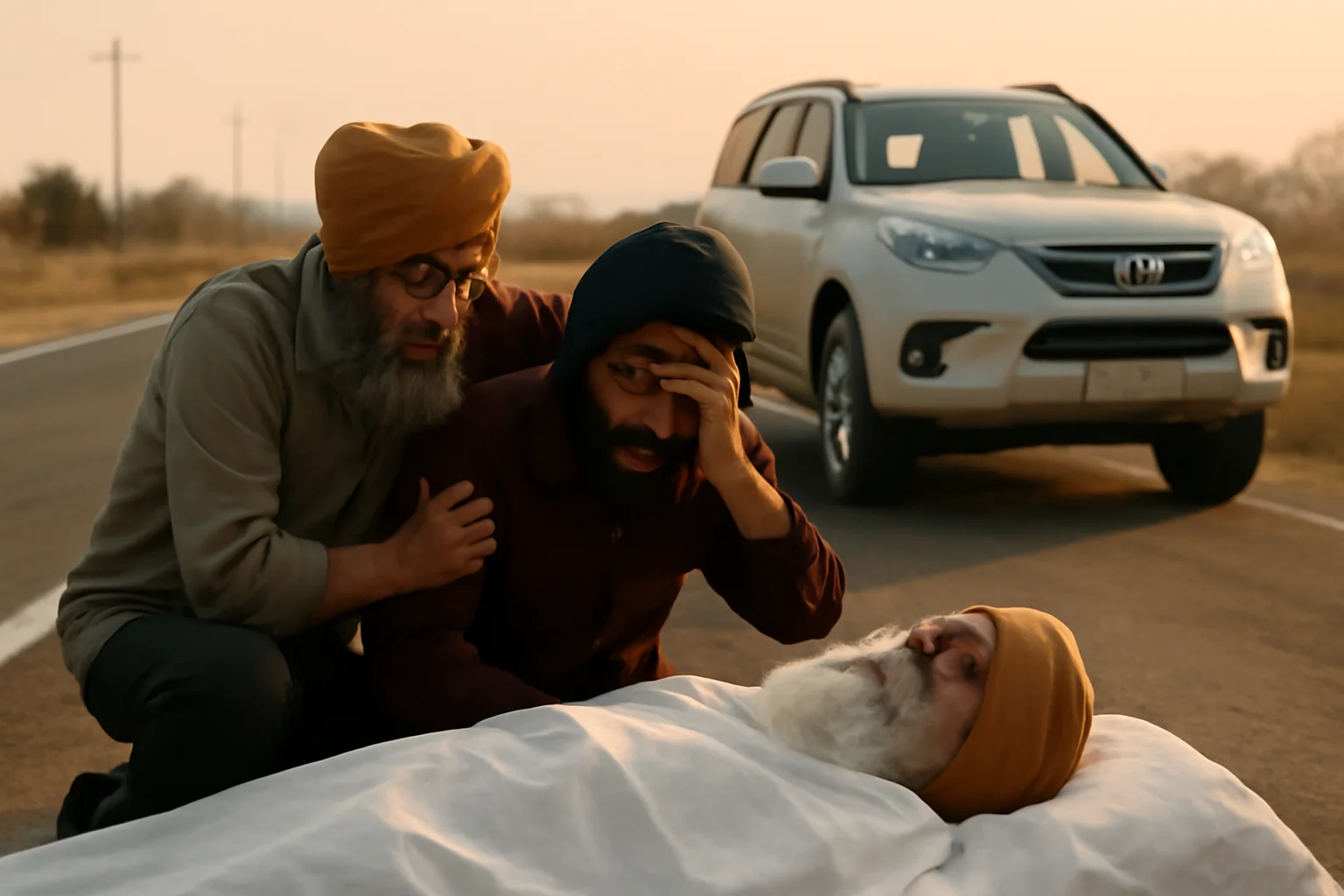
On July 14, 2025, the world lost its Turbaned Tornado in a tragic accident on a village road near his birthplace in Punjab.At 114 years old, Fauja Singh was still living actively, walking several miles a day and looking forward to more travels and charity work.The fatal accident—a hit-and-run by a Punjab-registered white Toyota Fortuner—cut short the remarkable journey of a man who had inspired millions.Police launched a search for the driver, and the news quickly reverberated through global media, sports communities, and diaspora networks.Tributes poured in from athletes, politicians, and ordinary admirers alike, from Indian Prime Minister Narendra Modi to Sikh organizations in London.For those closest to him, the loss was personal; his son Harvinder and coach Harmander Singh were by his side, mourning not just a champion, but a father and friend.Across continents, marathons and community events turned into celebrations of Fauja’s life and legacy.The Sikh running club in Ilford pledged to build a clubhouse in his memory, collecting 114 pounds from thousands of supporters worldwide.In every corner of the globe, runners honored his example with races, prayers, and acts of charity.The “Turbaned Tornado” was gone, but his message—of hope, resilience, and unstoppable spirit—raced on.In his passing, Fauja Singh united the world once more, reminding us all to cherish every step of the journey.
Advertisement
9. The Legend Endures
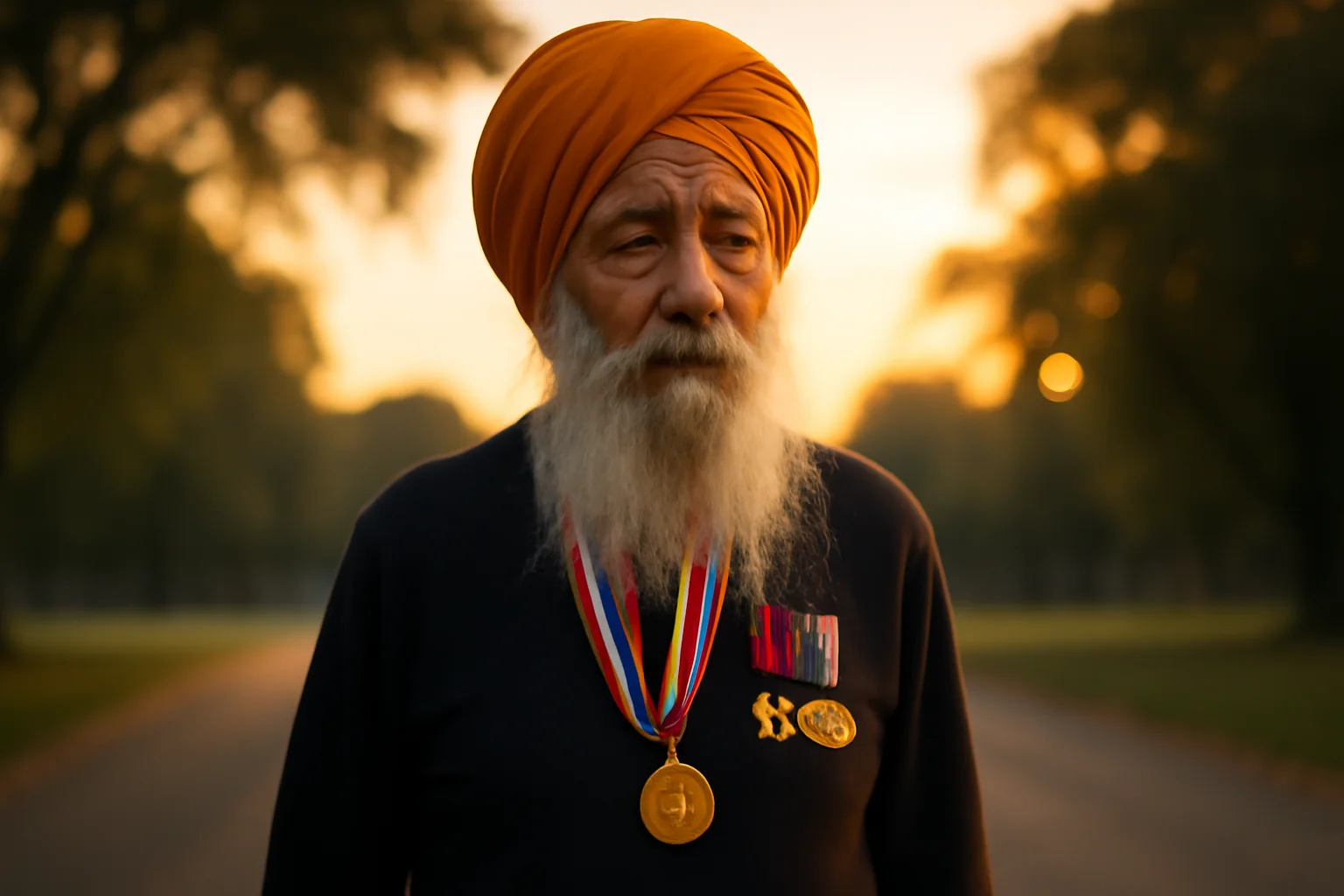
Fauja Singh’s legacy is not just measured by medals or marathon times, but by the ripple effect of his courage and optimism.He became a global icon by showing that age, grief, and adversity could be transformed into strength and service.His story was celebrated in biographies, news features, and even a children’s book—introducing his example to future generations.Sporting organizations, faith leaders, and world leaders paid tribute, hailing him as an inspiration to both young and old.He earned numerous honors, including the British Empire Medal, the Ellis Island Medal of Honor, and the distinction of torchbearer at two Olympic Games.His disciplined, joyful lifestyle became a blueprint for wellness and longevity, especially for older adults seeking new beginnings.Yet for Fauja, recognition was always secondary to the act of inspiring and lifting others.The communities he touched—from Ilford to Beas Pind, from Toronto to Hong Kong—remain forever changed by his presence.Friends remember him as humble, giving, and quietly profound, embodying the Sikh ideals of service, humility, and fearlessness.The outpouring of grief at his death was matched only by the celebration of his extraordinary, improbable life.The legend of Fauja Singh lives on wherever anyone chooses movement, hope, or kindness over despair.
Advertisement
10. Running Into Immortality
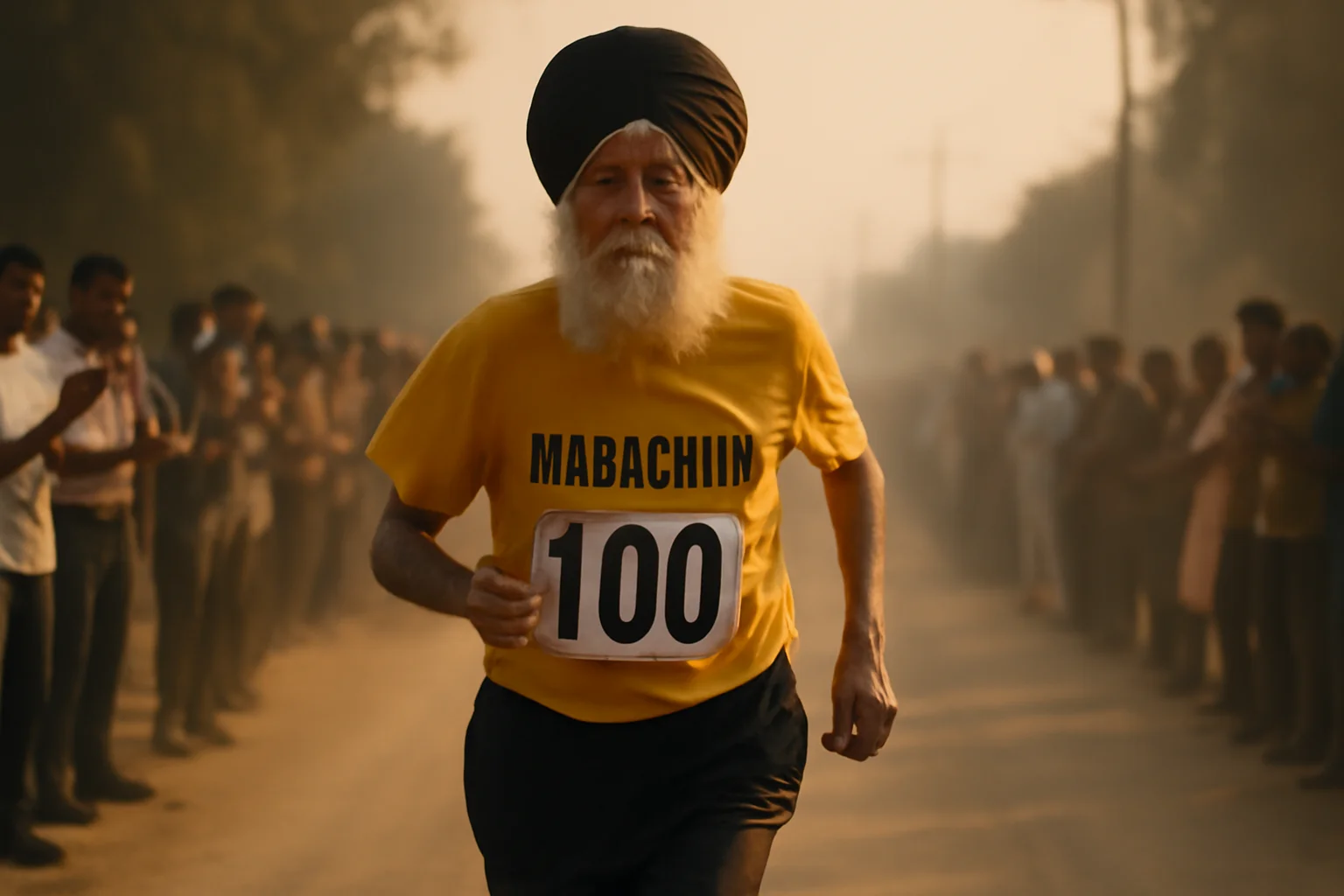
As the dust settles on a road in Punjab, the world continues to grapple with the meaning of Fauja Singh’s extraordinary journey.In the face of skepticism, hardship, and unimaginable grief, he demonstrated the power of determination to heal, transform, and unite.Marathons are not only races of distance, but metaphors for the challenges life throws at us—each mile, a lesson in patience, endurance, and faith.Fauja’s refusal to be defined by age or loss redefined what it meant to live fully, to strive, and to serve.His message to future generations is clear: never accept limits imposed by others—whether of time, circumstance, or expectation.By living with discipline, joy, and purpose, he inspired the world to rethink what is possible at every age.His impact will echo wherever runners gather, whenever an elder refuses to surrender to decline, and wherever hope is needed.Though official records may not confirm every detail of his story, the evidence is written in the lives he changed and the millions he inspired.With every step he took, Fauja Singh ran not just for himself, but for all who seek meaning and courage in life’s longest races.In the end, the Turbaned Tornado crossed the ultimate finish line not in solitude, but at the head of a global community who will carry his spirit forward.His race is over, but his example will run forever—undaunted, unforgettable, and free.
Advertisement
Advertisement
You May Also Like


